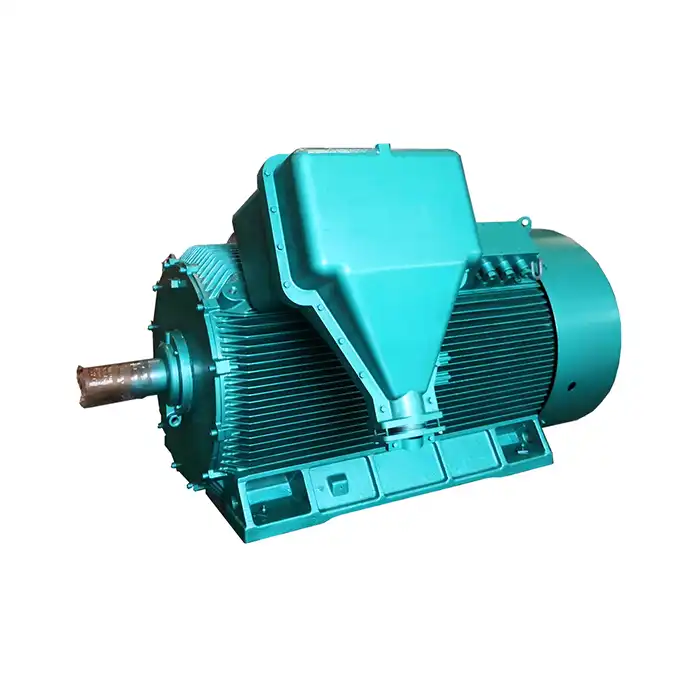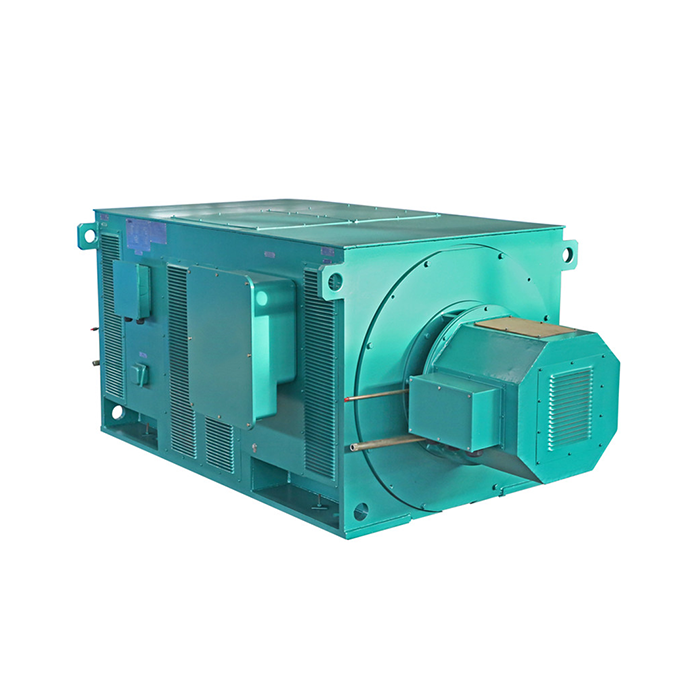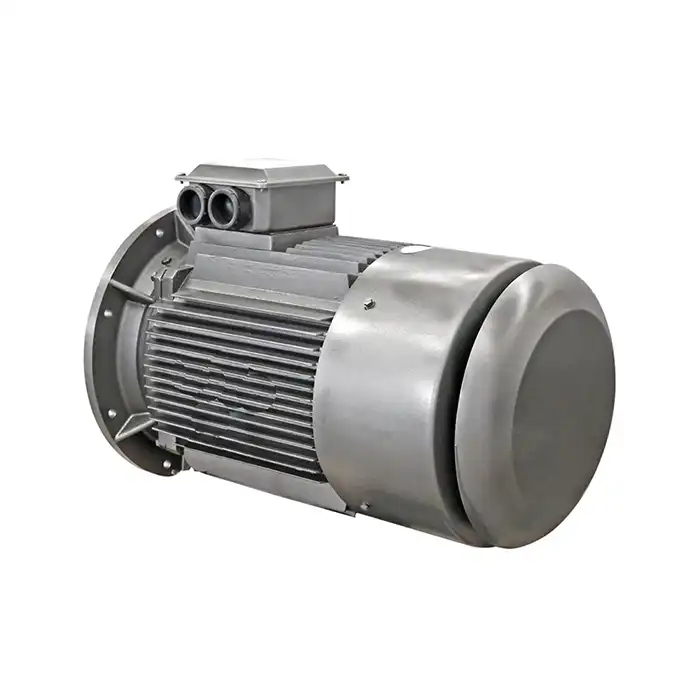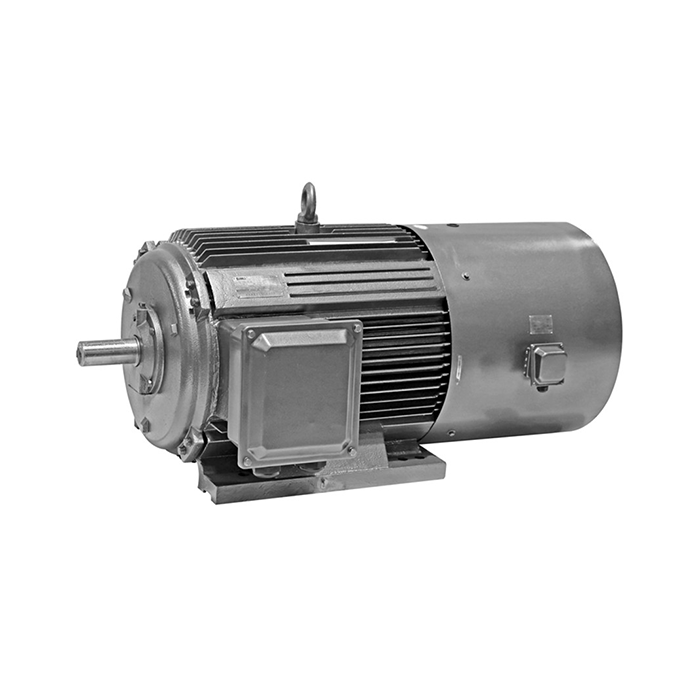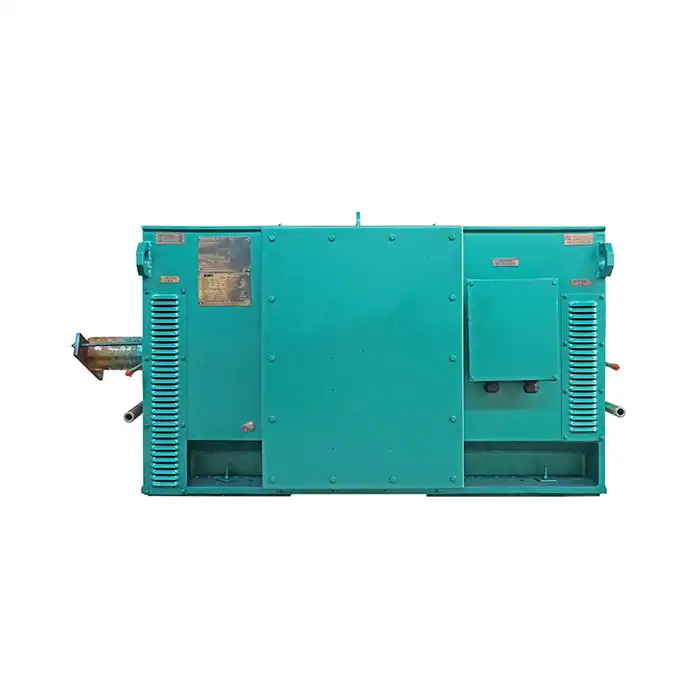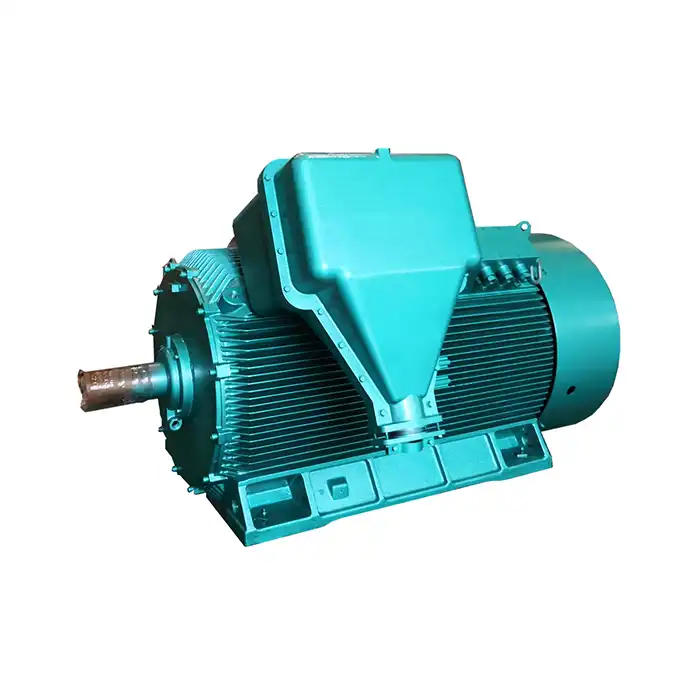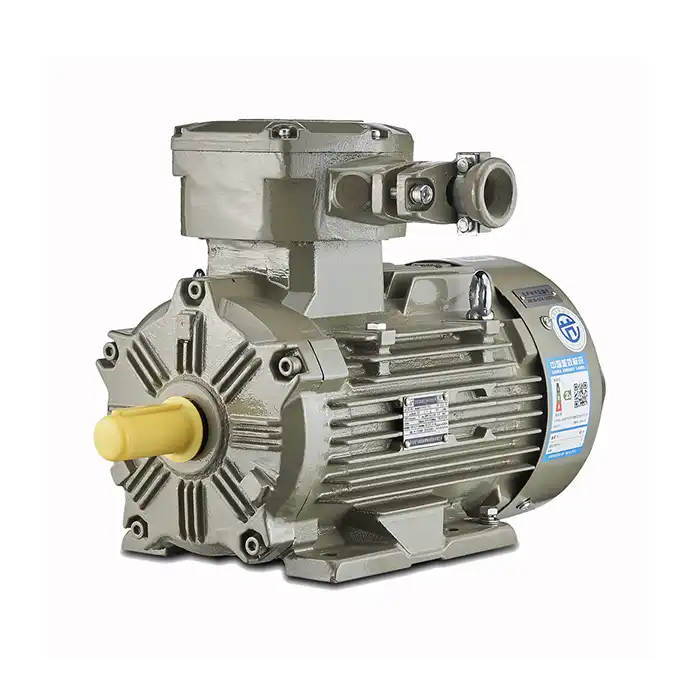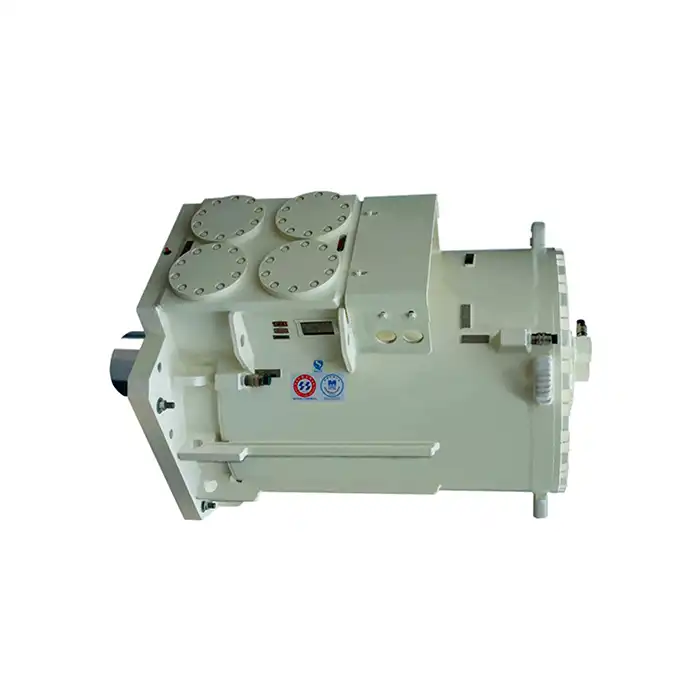Insulation is essential for dependable operation and long-term durability in the field of high-voltage motors. Class F insulation's exceptional durability and heat resistance have made it the standard option for many 11kV motor applications. The details of Class F insulation, its advantages, and how it affects 11kV motor performance are covered in detail in this article.
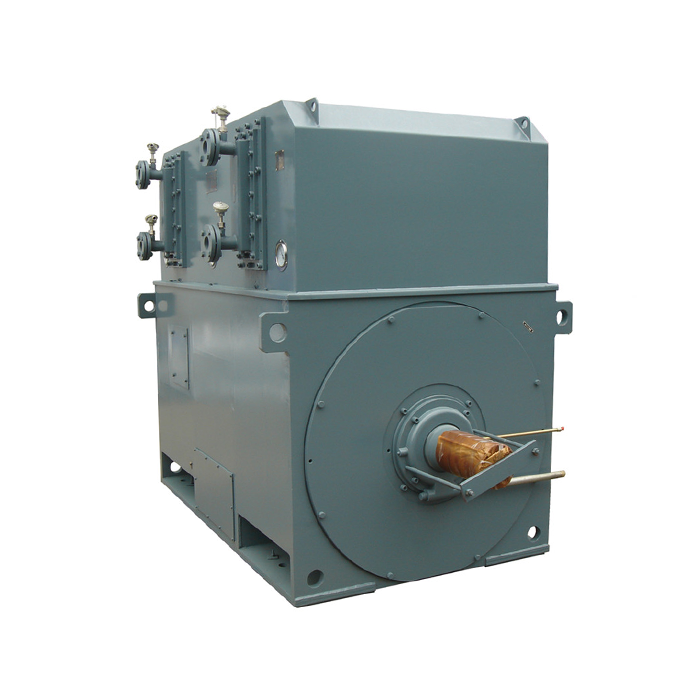
Series:YXKS
Protection level:IP54
Voltage range:3000V±5%,3300V±5%,6000V±5%,6600V±5%,10000V±5%,11000V±5%
Power range:220-3550 kW
Application:fans, water pumps, compressors, crushers, cutting machine tools, transportation machinery, etc.
Advantage:high efficiency and energy saving, light weight, low noise, small vibration, long service life, easy installation and maintenance.
Standard: This series of products complies with JB/T 12728 and JB/T 10446 standards.
Others: SKF, NSK, FAG bearings can be replaced according to customer requirements.
Temperature Resistance: Class F vs. Other Insulations
Class F insulation is designed to withstand higher operating temperatures compared to lower insulation classes. This characteristic is particularly important for 11kV motors, which often operate in demanding industrial environments.
Temperature Limits of Class F Insulation
Class F insulation is rated for a maximum temperature of 155°C (311°F), which represents a significant advantage over lower insulation classes. Class B insulation, for instance, is rated for 130°C (266°F), while Class A insulation can only sustain 105°C (221°F). This higher tolerance allows 11kV motors to operate safely under elevated ambient temperatures or during peak load periods. By withstanding greater heat without deteriorating, Class F insulation effectively prevents premature failures, ensures consistent motor performance, and enhances the overall safety of industrial electrical systems.
Impact on Motor Performance
The enhanced thermal resistance of Class F insulation has a direct impact on the performance and reliability of 11kV motors. With the ability to endure higher operating temperatures, motors can handle heavier loads and more frequent start-stop cycles without risking insulation breakdown. This translates into improved operational efficiency and reduced maintenance requirements for facilities operating under fluctuating or harsh conditions. In environments with high ambient temperatures or variable loads, the durability of Class F insulation ensures continuous performance, helping industries achieve stable production and lower overall lifecycle costs.
Longevity Benefits of Class F Insulation
The durability of Class F insulation contributes significantly to the overall lifespan of 11kV motors. Understanding these benefits can help users make informed decisions about motor selection and maintenance.
Extended Service Life
Class F insulation's ability to withstand higher temperatures without degradation means that motors equipped with this insulation typically have a longer service life. This is particularly valuable in industrial settings where downtime can be costly.
Resistance to Environmental Factors
In addition to temperature resistance, Class F insulation offers improved resistance to other environmental factors such as moisture, dust, and chemical contaminants. This makes it suitable for use in a wide range of industrial applications, including those with harsh operating conditions.
Maintenance Tips for Class F Insulated Motors
While Class F insulation offers superior performance, proper maintenance is still essential to ensure the longevity and reliability of 11kV motors.
Regular Insulation Resistance Testing
Periodic testing of insulation resistance is crucial to detect any degradation before it leads to motor failure. For 11kV motors with Class F insulation, it's recommended to perform these tests at least annually or more frequently in harsh environments.
Temperature Monitoring
Continuous monitoring of motor temperature can help prevent overheating and extend the life of the insulation. Implementing temperature sensors and alarms can provide early warning of potential issues.
Cleanliness and Ventilation
Maintaining a clean motor environment and ensuring proper ventilation are essential for the longevity of Class F insulation. Regular cleaning to remove dust and debris, and ensuring cooling systems are functioning correctly, can significantly impact motor life.
Class F insulation has become a standard choice for many 11kV motor applications due to its ability to withstand high temperatures and harsh environments. Its use in high-voltage motors contributes to improved performance, reliability, and longevity, making it a valuable asset in various industrial settings.
When selecting motors for critical applications, considering the insulation class is crucial. Class F insulation offers a balance of performance and durability that makes it well-suited for many high-voltage motor applications. However, it's important to consider the specific requirements of your application and consult with motor specialists to ensure the best choice for your needs.
Proper maintenance and operating practices are essential to fully realize the benefits of Class F insulation in 11kV motors. By following recommended maintenance procedures and monitoring motor performance, users can maximize the lifespan and reliability of their high-voltage motors.
As industrial processes continue to demand more from electrical equipment, the role of insulation in motor performance becomes increasingly important. Class F insulation represents a significant advancement in motor technology, enabling 11kV motors to meet the challenges of modern industrial applications.
Conclusion
An essential part of the construction and operation of 11kV motors is class F insulation. Longer motor life, increased dependability, and greater performance in tough industrial situations are all attributed to its exceptional temperature resistance and durability. Users are better equipped to choose and maintain motors, which will ultimately result in more economical and efficient operations, if they are aware of the advantages and maintenance needs of Class F insulation.
For your energy, transportation, HVAC, or industrial automation applications, are you searching for reliable, effective power equipment solutions? Modern power equipment with low energy consumption and great energy efficiency is the specialty of Shaanxi Qihe Xicheng Electromechanical Equipment Co., Ltd. Our group is committed to quickly resolving technical, post-purchase, and pre-sale problems.To learn more about our 11kV motors with Class F insulation and other power equipment solutions, please contact us at xcmotors@163.com. Let us help you optimize your operations with our reliable and efficient motor solutions.
References
1. Smith, J. (2020). "High Voltage Motor Insulation Systems: A Comprehensive Guide." Journal of Electrical Engineering, 45(3), 78-92.
2. Johnson, R. (2019). "Thermal Management in 11kV Motors: The Role of Insulation Classes." Industrial Motor Technology, 28(2), 112-125.
3. Brown, A., & Davis, L. (2021). "Longevity and Performance of Class F Insulation in High Voltage Motors." IEEE Transactions on Industrial Electronics, 68(7), 5987-5996.
4. Thompson, E. (2018). "Maintenance Strategies for 11kV Motors with Class F Insulation." Plant Engineering Quarterly, 33(4), 201-215.
5. Garcia, M., & Lee, S. (2022). "Advancements in Motor Insulation Technology: From Class A to Class H." Power Systems Research, 54(1), 45-58.
6. Wilson, K. (2020). "Environmental Factors Affecting High Voltage Motor Insulation: A Case Study on 11kV Motors." Journal of Industrial Maintenance & Reliability, 39(5), 330-342.



